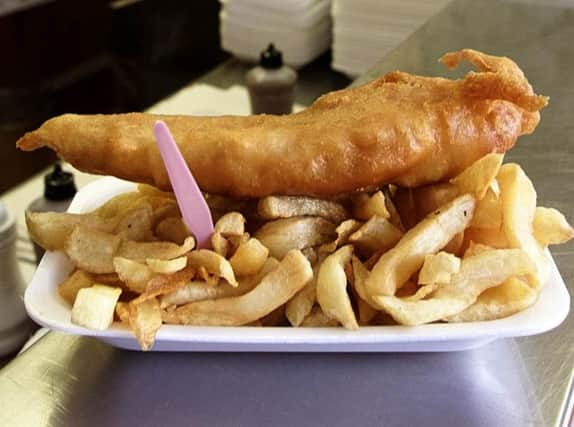Fish stock downgrade branded 'meaningless' by fishermen


The Marine Conservation Society said that two North Sea haddock fisheries are now rated 4 (amber), and the other has dropped from being a “good choice” - rated 2 - to one to eat only occasionally after scientists said stock was at the point where action is now needed to increase the number of fish of breeding age.
Haddock is a popular choice for fish suppers and is ranked as one of the UK’s “Big 5” fish species along with cod, tuna, salmon and prawns.
Advertisement
Hide AdAdvertisement
Hide AdBernadette Clarke, manager for the MCS Good Fish Guide, said: “These ratings changes have come about because scientfic perception of the stock has changed. Compared to 2015, the stock numbers in 2016 were below the recommended level and at the point where action is now needed to increase the number of fish of breeding age.”
But fishermen warned that the data did not reflect the picture on the ground.
Bertie Armstrong, chief executive of the Scottish Fishermen’s Federation, said: “The fishing industry is well used to these sorts of frankly meaningless publications - it’s not so long ago that we were told that there were only 100 cod left in the North Sea. Try telling that to fishermen today who are seeing huge volumes of large cod on the grounds.
He added: “Consumers can be re-assured that quotas for haddock have already been reduced in line with the stock assessments, following an unfortunate error by the scientists. So you can continue to buy your fish supper without worrying about whether there will be enough fish left in the sea.”
Stock of nephrops, commonly known as scampi, have improved, according to the latest addition of the guide. Scampi fisheries in the west of Scotland, Clyde and Jura catch areas are all ranked two, meaning they are a “good choice”.
Meanwhile, squid, often called calamari on the menu, has been experiencing mixed fortunes globally. Populations appear to be increasing in the North Sea, but the Argentine shortfin squid - the second biggest squid fishery in the world - has seen huge decreases in landings and 2016 prices increased by 30 per cent compared to the end of 2015.